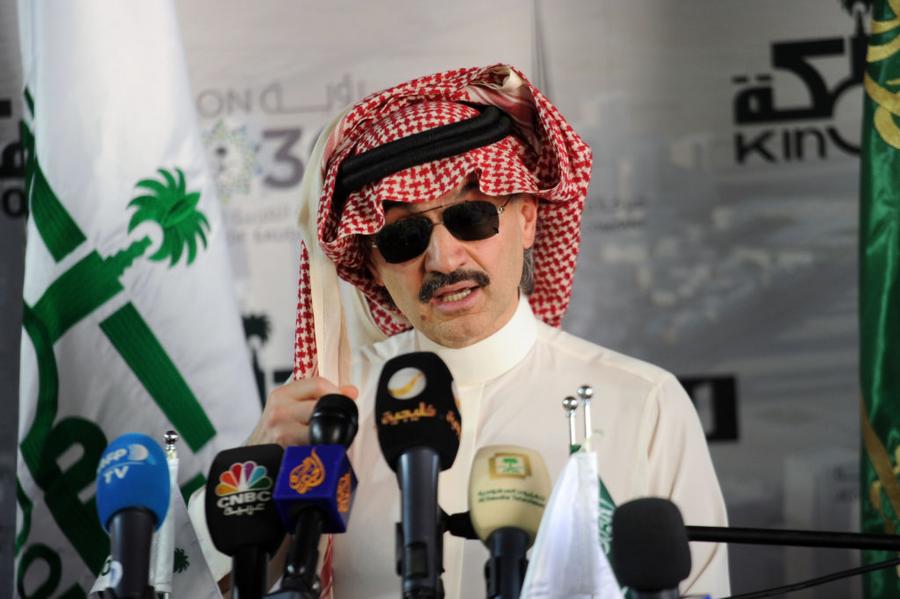Wealth on a family scale is one of the most fascinating subjects in finance. Unlike individual billionaires, dynastic wealth spans generations, often blending business empires, political influence, and historical legacy. The richest families don't just control companies – they shape economies, hold sway over governments, and in some cases, command nations themselves. Their fortunes are measured not only in billions but sometimes in trillions, accumulated through oil, retail, luxury, and sovereign assets.
The question of who holds the title of "richest family in the world" has been debated for decades. Some contenders are business dynasties that turned small enterprises into global giants, like the Walton family of Walmart or the Hermès-Dumas clan in luxury fashion. Others are royal households, whose power and fortunes are deeply tied to natural resources. The ruling families of Qatar, Abu Dhabi, and Saudi Arabia sit atop vast oil and gas reserves that have redefined global wealth. Their fortunes are difficult to untangle from state assets, yet their control is undeniable.
This list ranks the top five richest families in the world today, using the best available estimates of their combined net worth. It is presented in reverse order, from fifth to first. At the end, we also examine "Unverified Fortunes" – families like the Rothschilds, whose legendary wealth remains shrouded in myth and speculation.
5. Hermès Family (Dumas Family) – $170.6 billion
The Hermès family, owners of the Hermès luxury empire, has crafted one of Europe's greatest fortunes. Their net worth is estimated at roughly $170.6 billion, driven by control of the fashion house founded in 1837 by Thierry Hermès. What began as a harness and saddle workshop for the nobility evolved into one of the most coveted luxury brands on Earth.
Hermès is synonymous with exclusivity. Its silk scarves, ties, and especially the Birkin and Kelly handbags are status symbols with years-long waiting lists. By maintaining scarcity and an unwavering focus on craftsmanship, the company has built unmatched pricing power. The brand's cult following in markets like China and the Middle East has only fueled growth.
Leadership today rests with sixth-generation descendants in the Dumas branch. Axel Dumas serves as executive chairman, while Pierre-Alexis Dumas guides artistic direction. The family retains tight control over the business, ensuring it remains independent despite frequent speculation about mergers with rivals like LVMH. Their fortune has soared as Hermès stock repeatedly hit record highs, making the family the wealthiest in France and firmly within the global top five.
4. Al Thani Family (House of Thani, Qatar) – $172 billion
The Al Thani family, rulers of Qatar since the mid-19th century, transformed a desert emirate into one of the richest states per capita in the world. Their fortune, estimated at $172.9 billion, stems largely from Qatar's enormous natural gas reserves.
The turning point came under Sheikh Hamad bin Khalifa Al Thani, who seized power in 1995. He prioritized the development of the North Field, the largest natural gas field in the world. Within decades, Qatar became a leading exporter of liquefied natural gas, supplying major economies in Asia and Europe. That energy wealth created staggering revenues for the ruling family.
The Qatar Investment Authority, its sovereign wealth fund, has expanded the fortune through global holdings. Stakes in Barclays, Volkswagen, Harrods, and London's Shard skyscraper are just a few of their visible investments. Current ruler Sheikh Tamim bin Hamad Al Thani, Hamad's son, oversees a dynasty that balances political influence with a fortune that stretches far beyond the Gulf. The Al Thanis remain a textbook example of how natural resources can catapult a royal family into the ranks of the world's wealthiest.
3. Al Nahyan Family (House of Nahyan, Abu Dhabi) – $323 billion
The Al Nahyan family of Abu Dhabi, part of the United Arab Emirates, controls one of the world's largest oil fortunes. Their combined wealth is estimated at $323.9 billion, making them the richest family in the UAE.
Abu Dhabi holds about 10% of the planet's proven oil reserves. The family's patriarch, Sheikh Zayed bin Sultan Al Nahyan, used this wealth to unify the UAE in 1971 and lay the foundation for today's prosperity. His son, Sheikh Mohammed bin Zayed Al Nahyan (MBZ), now serves as President of the UAE and head of the dynasty.
The Al Nahyan fortune flows through powerful sovereign wealth funds, most notably the Abu Dhabi Investment Authority and Mubadala. Together, they control hundreds of billions in global assets ranging from real estate to technology companies. The family has also made splashy acquisitions, such as Manchester City Football Club. Their wealth is not just about oil revenue but also about how effectively they reinvested it across the globe. At over $300 billion, the Al Nahyan dynasty sits solidly in the top three.
2. Walton Family – $430 billion
The Walton family represents the pinnacle of business dynasties. With a combined fortune of roughly $432 billion, they are the richest non-royal family in the world. Their wealth comes from Walmart, the retail giant founded by Sam Walton in 1962.
From a single store in Rogers, Arkansas, Walmart grew into the world's largest retailer. The company generated $648 billion in revenue in 2024 and employs 2.3 million people worldwide. The Waltons still control about 45% of Walmart's equity.
Sam's children – Jim, Rob, and Alice – each hold tens of billions. His grandchildren and in-laws are billionaires as well, making the family tree a constellation of wealth. Even as some of their shares have been funneled into charitable foundations, their holdings remain immense. The Waltons' fortune rises and falls with Walmart's stock, but with the company's global dominance intact, their position as the richest American family is secure.
Jim Walton has a net worth of $120 billion. Alice Walton is worth $123 billion. Rob Walton is worth $116 billion. Lukas Walton is worth $40 billion. Christy Walton has $20 billion, and Ann Walton Kroenke has $12 billion.

Rick T. Wilking/Getty Images
1. House of Saud (Saudi Royal Family) – $1.4 trillion
The House of Saud, rulers of Saudi Arabia, is in a class of its own. Their estimated fortune of $1.4 trillion makes them the richest family in the world by a staggering margin.
The family's wealth is inseparable from Saudi Aramco, the state-owned oil company that is the most valuable corporation on Earth, with a market cap approaching $6 trillion. The Al Saud dynasty controls the company's vast reserves, representing nearly 17% of the world's oil.
There are about 15,000 members of the royal family, with power and money concentrated in a few hundred princes. King Salman, Crown Prince Mohammed bin Salman, and billionaire Prince Alwaleed bin Talal are among the best-known members. Their wealth is displayed through palaces, fleets of private jets, and extravagant art purchases, like the $450 million Leonardo da Vinci painting acquired by a Saudi prince. No other dynasty comes close to the House of Saud in sheer scale, cementing their place at the top of this ranking.

AMER HILABI/AFP/Getty Images
Unverified Fortunes & Historical Dynasties
Some families are legendary for their wealth, but too difficult to rank with precision. Chief among them are the Rothschilds, the European banking dynasty that pioneered international finance in the 18th and 19th centuries.
Mayer Amschel Rothschild and his five sons built a cross-continental banking network that once dominated global finance. In relative terms, they were almost certainly the wealthiest family of the 19th century. But their fortune was divided over generations and dispersed into various business branches.
Estimates of modern Rothschild wealth range from hundreds of billions to wild claims of trillions. The truth lies closer to the former. While the family still controls banks, wineries, and real estate, no individual Rothschild ranks among the world's richest people today. Their enduring mystique has made them magnets for conspiracy theories, from claims they control central banks to whispers of shadow governments. Similar "old money" families like the Rockefellers have also seen their fortunes diluted over time.
These dynasties remain wealthy and influential, but in today's rankings, they are overshadowed by the oil-rich royals and modern business empires that dominate the global wealth landscape.
/2025/04/Salman-bin-Abdulaziz-Al-Saud.jpg)
/2019/10/GettyImages-154435774.jpg)
/2018/04/mansour.jpg)
/2025/08/Sheikh-Mohamed-bin-Zayed-Al-Nahyan.jpg)
/2021/12/haya.jpg)
/2018/01/house-saud.jpg)
/2020/06/taylor.png)
/2020/01/lopez3.jpg)
/2009/09/Jennifer-Aniston.jpg)
/2019/04/rr.jpg)
:strip_exif()/2015/09/GettyImages-476575299.jpg)
:strip_exif()/2009/09/P-Diddy.jpg)
/2017/02/GettyImages-528215436.jpg)
/2018/03/GettyImages-821622848.jpg)
/2019/11/GettyImages-1094653148.jpg)
/2009/09/Brad-Pitt.jpg)
/2019/10/denzel-washington-1.jpg)
/2009/09/Cristiano-Ronaldo.jpg)
/2020/04/Megan-Fox.jpg)
/2009/11/George-Clooney.jpg)
/2020/02/Angelina-Jolie.png)